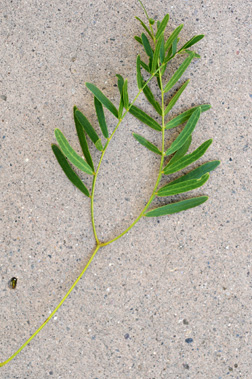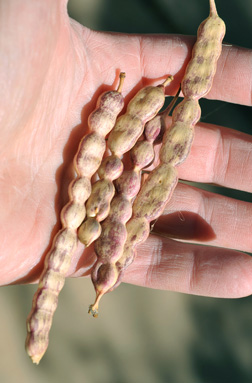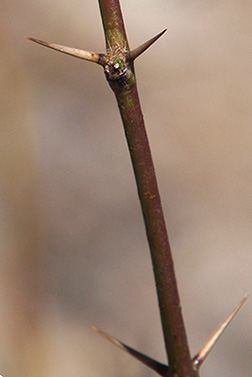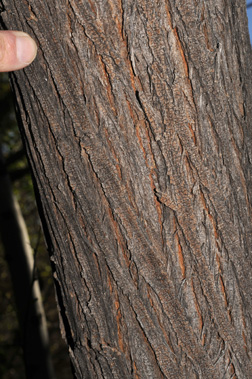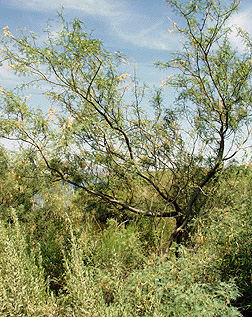 Virginia Tech Dendrology
Virginia Tech Dendrology
honey mesquite Fabaceae Prosopis
glandulosa Torr.
![]()
![]() symbol: PRGL2
symbol: PRGL2
Leaf: Alternate, bipinnately compound, 3 to 6 inches long, usually with only two major leaflets (may occasionally have 2 to 3 pairs), each leaflet with 10 to 16 pairs of narrow minor leaflets (3/8 to 1 inch long) with entire margins and smooth surfaces, green to gray green above, paler below.
Flower: Small pale yellow to yellow-green in 2 to 3 inch long slender spikes in clusters of 2 to 6, appearing in late spring to early summer.
Fruit: A 3 to 7 inch long, tubular legume, slightly swollen at seeds, light brown, ripening in mid to late summer.
Twig: Light brown, slightly zigzag with obvious paired slender, spines (up to 1 inch long) at the base of each leaf; knobby spur branches may also be present.
Bark: Very distinct, rough shreddy to scaly, outer older bark gray-brown, newer bark reddish brown.
Form: A thicket forming, small tree to large shrub (up to 25 feet), typically with several crooked and arching stems forming a broad round crown.
Looks like: screwbean mesquite
- velvet mesquite
- catclaw acacia
Additional Range Information: Prosopis glandulosa is native to North America. Range may be expanded by planting. Download the full-size PDF map.
External Links: USDAFS FEIS Silvics - USDA Plants Database - Horticulture Information - USDAFS Forest Products Lab
All material 2025 Virginia Tech Dept. of Forest Resources and Environmental Conservation; Photos and text by: John Seiler, Edward Jensen, Alex Niemiera, and John Peterson; Silvics reprinted from Ag Handbook 654; range map source information
